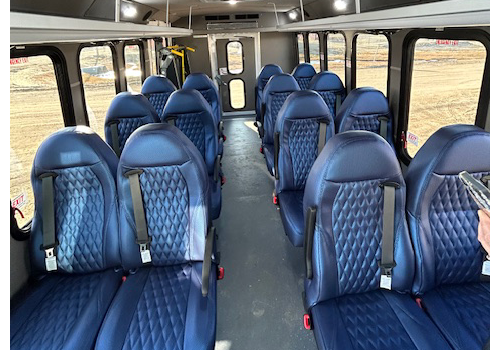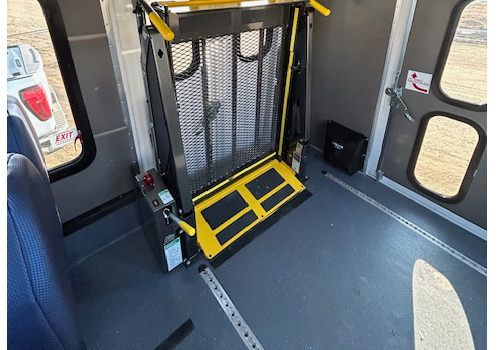The Story Behind Pond Inlets New On-Demand Bus Service
The Story Behind Pond Inlet's New On-Demand Bus Service
Funding provided through the Rural Transit Solutions Fund.



Pond Inlet, Nunavut, also known as the "Jewel of the North" for its scenic mountain sides, has a new on-demand bus service. With a population of around 1,600 residents, the rural community previously relied on personal transportation for getting around. Made possible with federal and municipal funding, the new service fills a crucial gap, particularly for those with mobility restrictions or without personal vehicles.
Did you know?
The community has identified the bus as “one of the most useful things that have appeared in Pond Inlet, so far”.
This initiative was driven by a simple yet crucial goal: to ensure every resident of Pond Inlet can access essential services. Whether it’s for attending medical appointments, grocery shopping, or participating in local events, this new bus helps to connect residents to their needs and interests, reducing social isolation. With its accessibility features, the bus is equipped to serve all community members. The bus doesn’t just transport residents from point A to B; it’s a vehicle that fosters inclusivity, empowers people, and creates social connection.
The Pond Inlet on-demand bus service is providing residents with access to a reliable and comfortable transportation solution, connecting them to what matters most. This project demonstrates how infrastructure initiatives, regardless of size, can make significant differences for our communities.
Quick facts:
- Pond Inlet is a small, predominantly Inuit, community in the Qikiqtaaluk Region of Nunavut, Canada, located on northern Baffin Island. It has a population of approximatel
- The project received $150,000 through the Rural Transit Solutions Fund, and $71,618 in municipal funding.
- Since 2021, the RTSF helps Canadians living in rural and remote areas get around their communities more easily. It supports the development of rural transit solutions, including new transit service models that could be replicated or scaled up.